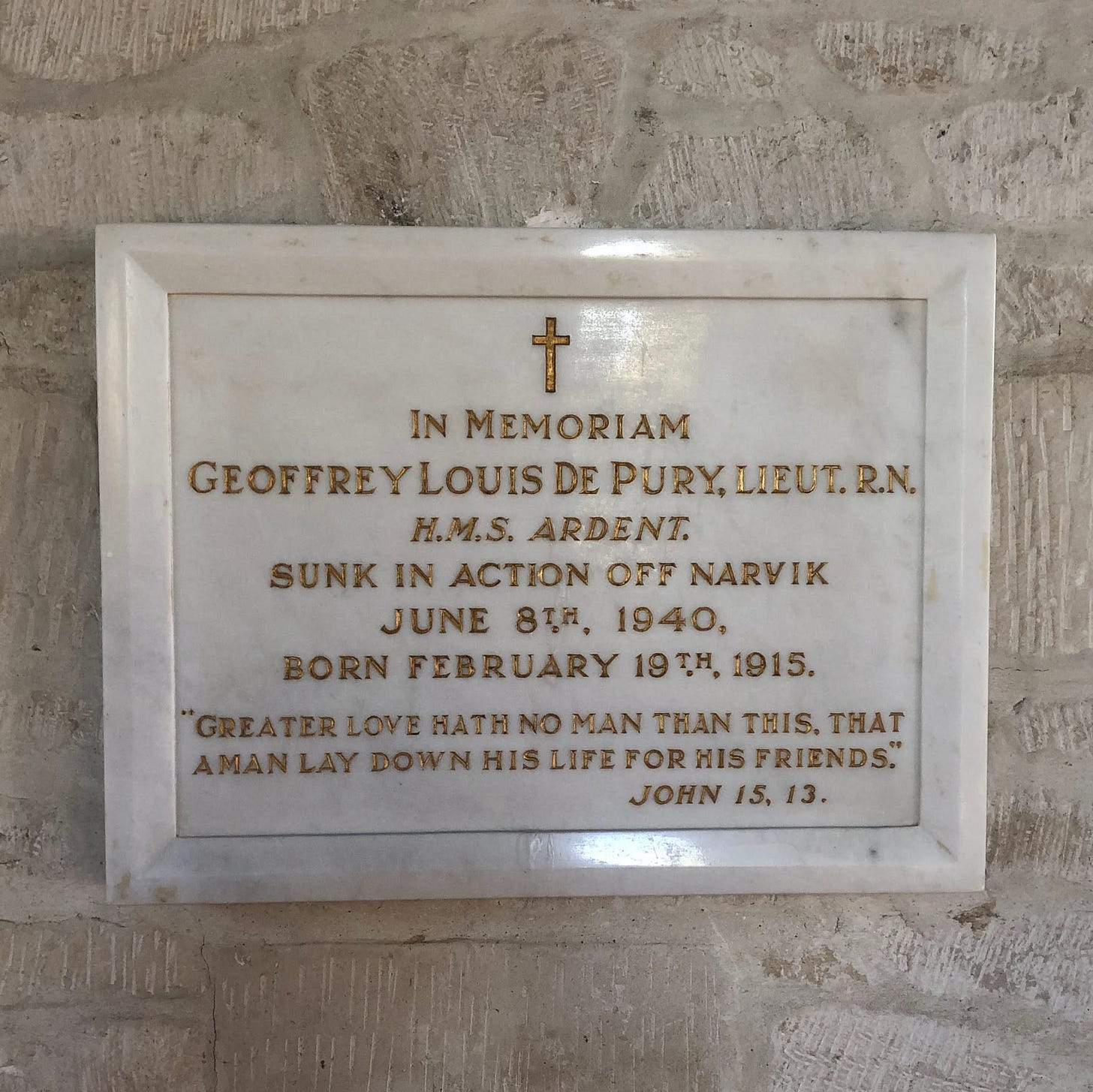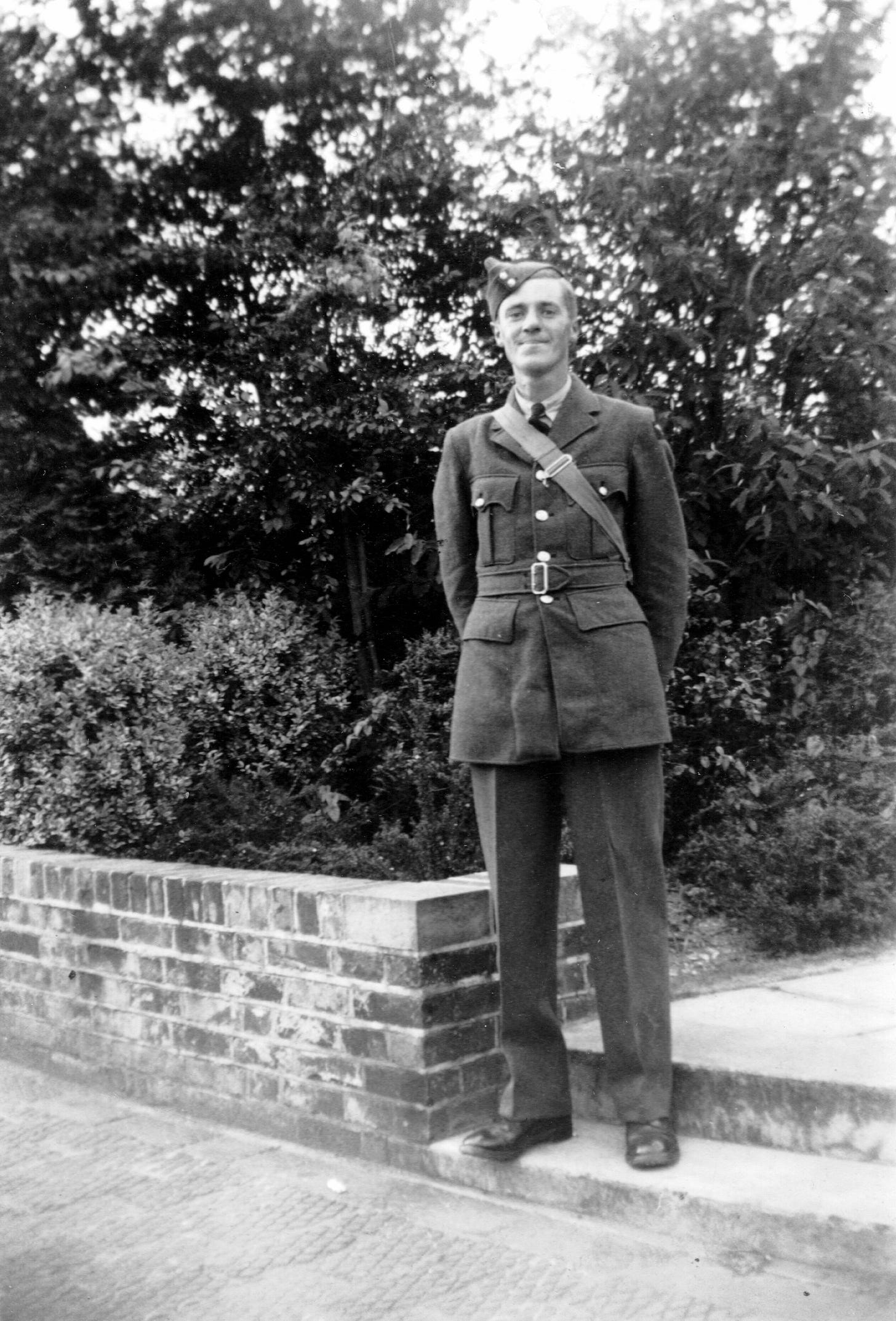Geoffrey de Pury 1915 - 1940 and Alan Bendy 1916 - 1941
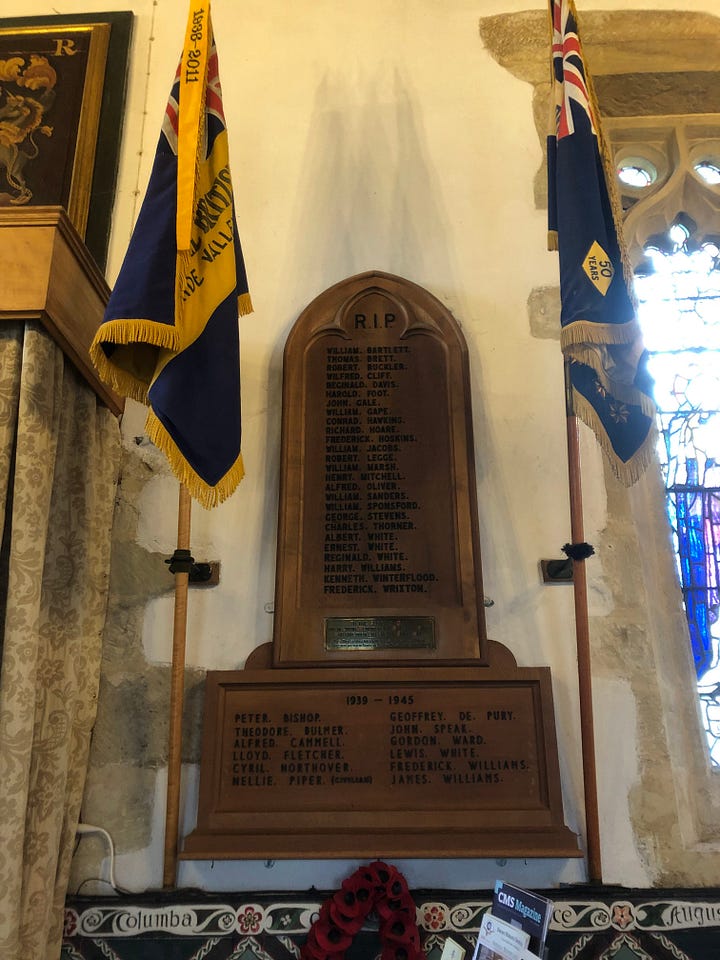
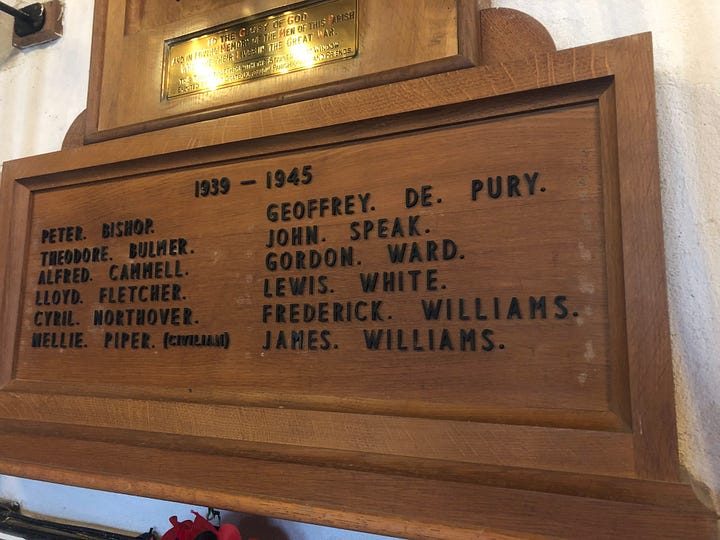
In Burton Bradstock church, there is a memorial to those from the local area who lost their lives during the two World Wars. Included among these names is that of Geoffrey de Pury, who was a member of Adela Curtis’ community, The Christian Contemplatives’ Charity (CCC). His parents, Margaret and Herman de Pury had been connected with the School of Silence at Cold Ash and some years later had built a wooden home for themselves on Adela Curtis’ field at Burton Mere, on the east side and they called this ‘Four Winds’. Geoffrey had his own ‘cottage’ near theirs and when he was home and involved in the community he was known as Br Geoff. Geoff was the youngest of the de Pury children and by the time WWII started, his mother, Sr Margaret had already been widowed for a few years. Geoff went into the Royal Navy and was on the HMS Ardent when it was sunk off Narvik in Norway in June 1940. He is also commemorated in the Chapel at Othona.
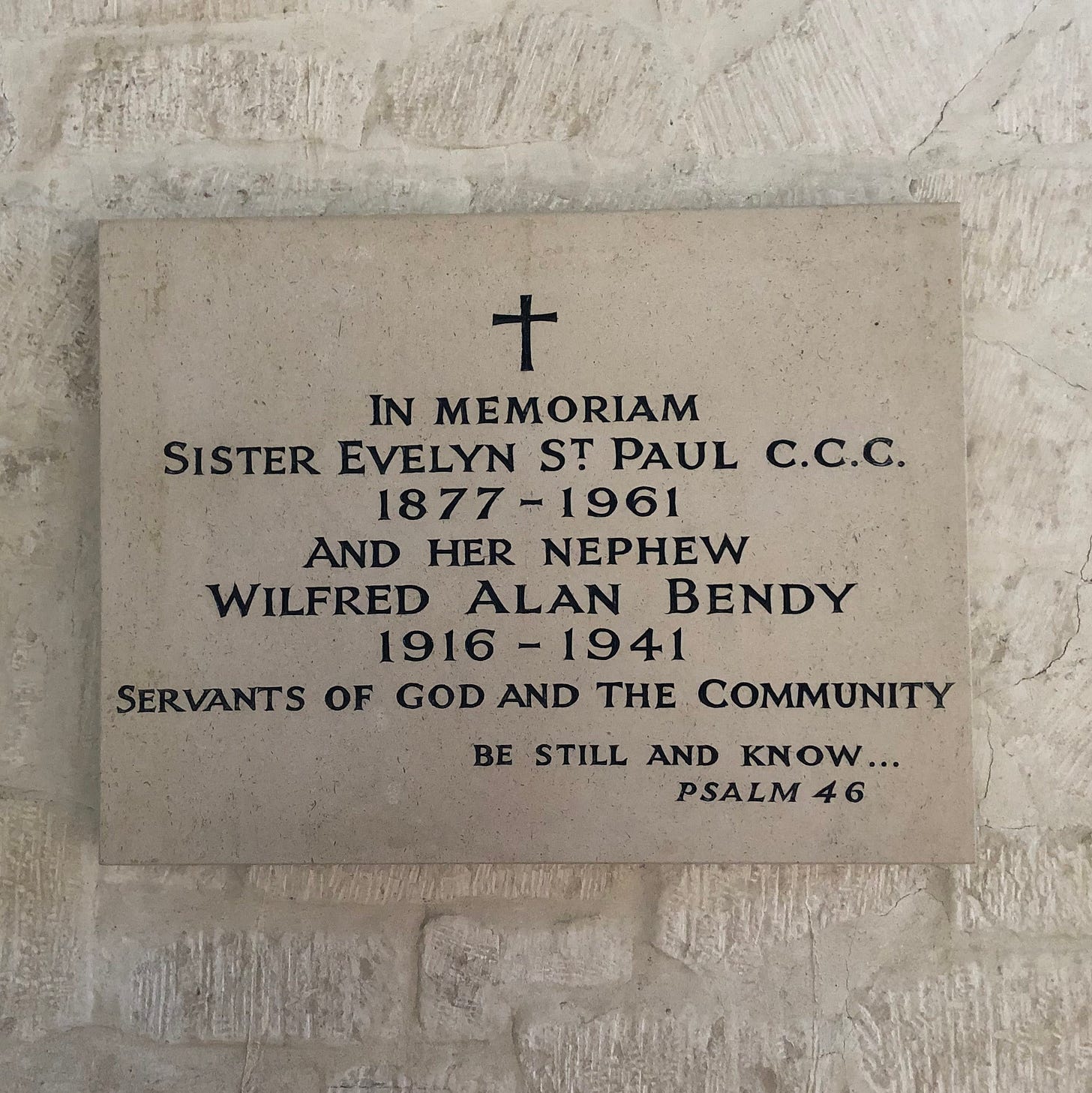
You can see from the photo directly above that there was another young man commemorated in the Chapel, Wilfred Alan Bendy, known as Alan. He came straight from studying horticulture at Cannington College to be head gardener for the CCC at the beginning of 1939. He had already got connections with the community: his aunt Evelyn Bendy became a residential community member here in 1931, in response to an advertisement for Adela Curtis’ Bible Students’ Colony. She was close to her younger brother, his wife and their two sons, Alan and John and they all came and stayed with Auntie Evelyn for a holiday. Alan in particular was drawn to Miss Curtis’ teaching, as well as the way of life and would come and stay at other times before he took on the garden role officially. Adela noted his arrival in her diary for 1939:
‘Same day Alan Bendy arrived as resident gardener & student, to live in End Hut, dine daily at Community House, attend lectures & noon and evening services & draw salary of 37/6 a week.’
The garden was a huge challenge for anyone - neither the size of the site, which was 17 acres - nor the poor quality of the soil helped. Eventually, with war looming, Alan left to return home before deciding to join the RAF. He continued to keep in touch with the community and perhaps the last letter he wrote was to Adela Curtis, whom everyone called Warden:
April 1941
Dear Warden
I attempted to send Easter greetings by letter but this marvellous weather means that we are flying long hours, and are surprisingly tired when we finish the day, so even urgent correspondence has been left. We worked Good Friday, Sat. & Sunday, but I managed to partake of Holy Communion at Hornsea Parish Church on Sunday morning. I realise that it is essential to keep up my practice of meditation, even more important than gunnery or the many other jobs we have to master, so I make time for mind training and studies. Thus I can say I have started The Divine Law of the Body, a copy of which you were thoughtful enough to send me, and am enjoying and digesting it. Thank you very much for writing it and for having me in mind when you dished out the copies.
In a month’s time we expect to start on operations against the enemy & are eager to do so. I have a very good crew, the Pilot being a New Zealander & the Observer a Cornishman. We get on well with each other and are becoming more efficient each day. We shall be in time for the Battle of the Atlantic.
This part of the training is very enjoyable, perhaps because it is such hard work. Last Wed. we spent 7 ½ hours in the air, most of it over the sea. 90% of the time I was transmitting or receiving on the wireless.
It is good to be able to face the fact that we are walking through the Valley of the shadow even more in a war plane than on the ground, and yet to be able to be cheerful in the knowledge that God is with us always.
A Meditation I use just now is “Though I walk through the valley of the shadow of death I will fear no evil, for Thou art with me” & everyone needs that knowledge now more than ever. Also, when successful at my exercises (and I have been pretty good) I use “Of myself I can do nothing, but in Christ I can do all things” so I redirect the pride that comes before a fall. One of my friends crashed and was killed last week, while on an exercise. I volunteered to go in that kite, but had already passed that exercise. Just one instance.
Well, I have to get into communication with a motor boat from the air shortly so must go.
Sunday morning has a recognisable atmosphere, even when everyone is working! Those who can be spared (or who cannot manage to escape) go on Church Parade, but how few see the good of it! Let us hope the grinding down process won’t be too prolonged.
May you & all those at Burton know health & peace.
From,
Alan Bendy.
Sadly, Alan’s plane went missing in action and he too was a keen loss to the community, as well as to his family.
Adela Curtis was definitely not a pacifist and believed WWII was a just war and that Hitler needed to be and would be defeated. This did not mean that she felt all was well with England and the UK - quite the opposite - for her, this war was a punishment for the allies as well as the axis nations. The allies called themselves ‘Christian’ countries, but according to her had turned their backs on what this truly meant. I have chosen a short extract from one of her pamphlets in which she talks about the importance of prayer as a weapon in the war:
‘… the most effective of all weapons in our warfare is Faithful Prayer. And this is the most important of our National Defence Service: for, however little it may be recognised or believed, the worth of every other kind of service depends upon it being done in the Spirit of Prayer, as rendered unto God by His servant, whose work will be judged by Him. Whatever labour hand and foot, eye and brain, may be engaged in for the Nation’s need, as our share in Universal Service, it must be done as an integral part of our prayer-life, with all the heart and mind and soul and strength for Love of God and man.’
From Adela Curtis’ pamphlet entitled The Judgement of the Nations: An Address given in the Chapel of the Community, Sunday, September 24th, 1939 and printed, by request, with later additions, to Oct. 29. p29. (In the extract above, they are her italics and her use of capital letters, plus she uses the male pronoun for God and ‘man’ to denote humankind, as was customary at that period.)



